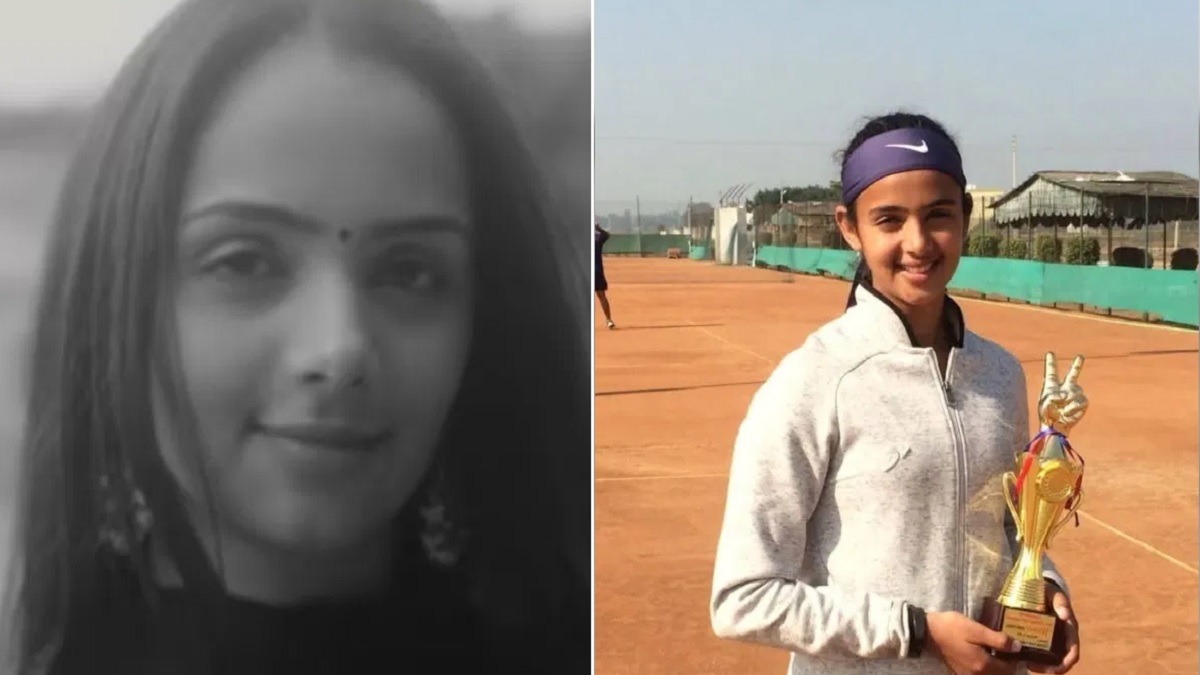Tragedy in Haryana: The Murder of Tennis Star Radhika Yadav and the Shadows of Patriarchy

Introduction
On July 10th, a chilling incident in Gurugram, Haryana, sent shockwaves across India. Radhika Yadav, a promising 25-year-old tennis player and coach, was shot dead by her own father, Deepak Yadav, in a crime that has reignited debate over gender, honor, and the oppressive weight of societal expectations in rural India. The murder, rooted in wounded pride and the toxic influence of public opinion, has become a tragic symbol of the struggles faced by independent women in traditional societies.
The Victim: Radhika Yadav’s Journey
Radhika Yadav was not an ordinary woman from rural Haryana. From a young age, she displayed exceptional talent in tennis, quickly rising through the ranks at the state level and dreaming of international glory. Her dedication and skill won her several awards, making her a source of pride for her family and community.
However, her journey was not without setbacks. A shoulder injury forced her to pause her playing career. Undeterred, Radhika transitioned into coaching, training other aspiring players and eventually deciding to open her own tennis academy. This move was not just a professional step but also a bold statement of independence—a young woman carving her own path in a society where such ambition is often met with resistance.
The Crime: A Father’s Fatal Decision
Despite Radhika’s achievements, her success became a source of discomfort for her father, Deepak Yadav. In their village, whispers and taunts were common. Neighbors would mock Deepak, saying he was living off his daughter’s earnings—a comment that, in the deeply patriarchal context of rural India, was seen as an affront to his masculinity and family honor.
The situation escalated when Radhika decided to open her own tennis academy. Instead of feeling pride, Deepak was agitated by the gossip and the perceived loss of control over his daughter’s life. He asked Radhika to close the academy, but she refused, determined to pursue her dreams.
On the morning of July 10th, Radhika was in the kitchen on the first floor of their home, preparing food. Deepak, carrying his licensed revolver, entered the kitchen and shot his daughter three times in the back. The shots rang out through the house, shattering the lives of everyone inside.
The Aftermath: Family in Shock, Community in Mourning
Radhika’s mother was at home, resting, while her brother was away on an errand. The first to reach Radhika after the shooting was her uncle, Kuldeep Yadav, who lived on the ground floor of the same house. Hearing the gunshots, he rushed upstairs and found his niece lying in a pool of blood, the revolver discarded nearby.
Kuldeep and his son immediately took Radhika to a private hospital in Sector 56, Gurugram. Despite their efforts, doctors declared her dead on arrival. The family was left devastated, struggling to comprehend the loss of a daughter, sister, and niece who had shown so much promise.
Kuldeep filed the police complaint, telling authorities that he had no doubt his brother Deepak had committed the crime, as the murder weapon was registered in Deepak’s name.
Police Investigation and Confession
The police quickly arrested Deepak Yadav, a 49-year-old resident of Gurugram. During initial questioning, Deepak confessed to the crime. He told police that he had been deeply troubled by the constant taunts from villagers, who accused him of living off his daughter’s income and questioned her character. He said he had repeatedly asked Radhika to shut down her academy, but she refused. The tension and perceived insult to his honor, he claimed, pushed him to commit the act.
Police confirmed that Radhika had been shot three times. They registered a case against Deepak under Section 302 (murder) of the Indian Penal Code and relevant sections of the Arms Act. The investigation is ongoing, but Deepak’s confession and the evidence at the scene have left little doubt about his guilt.
A Community’s Role: The Power of Gossip and Patriarchy
Community’s Role: The Power of Gossip and Patriarchy
What makes this tragedy particularly disturbing is the role played by societal pressure. In many parts of rural India, the idea of a daughter supporting her family financially is still stigmatized. The father, instead of celebrating his daughter’s independence and success, felt emasculated by the taunts of his peers. The constant gossip about Radhika’s character and her father’s reliance on her income became unbearable for Deepak, culminating in a crime that has horrified the nation.
This is not an isolated incident. Across India, women who break traditional gender roles often face backlash—not just from their families, but from entire communities. The concept of “honor” is frequently invoked to justify violence against women, whether it is for choosing a career, marrying outside caste or religion, or asserting independence.
Dreams Shattered: The Loss of a Role Model
Radhika Yadav was more than just a tennis player; she was a role model for countless young girls in her village and beyond. Her journey from a small town to the brink of international sports was a testament to what Indian women can achieve when given the opportunity. By running her own academy, she was not only pursuing her dreams but also empowering others to follow in her footsteps.
Her murder is a devastating blow—not only to her family but also to the dreams of many young athletes who saw her as an inspiration. The loss is immeasurable, and the void left by her absence will be felt for years to come.
Legal and Social Repercussions
Deepak Yadav’s arrest and the swift police action have been welcomed by many, but activists argue that legal action alone is not enough. There is a growing demand for societal change, for a re-examination of the values that place family honor above the lives and ambitions of women.
Women’s rights organizations have called for awareness campaigns in rural areas, stricter enforcement of laws protecting women, and greater support for female athletes and professionals. Many are asking: How many more Radhikas must die before society learns to value its daughters?
Voices of Outrage and Calls for Change
The murder has sparked outrage on social media and in newsrooms across India. Prominent athletes, politicians, and activists have condemned the killing, calling it a stark reminder of the dangers faced by independent women in patriarchal societies.
“Radhika’s only ‘crime’ was to dream big and work hard,” tweeted one women’s rights activist. “Her murder is a collective failure—of family, community, and society.”
Many have also pointed out the complicity of the community. The villagers who taunted Deepak may not have pulled the trigger, but their words contributed to the toxic environment that led to Radhika’s death. There are calls for community leaders and local governments to take responsibility for changing attitudes and promoting gender equality.
A National Conversation
The tragedy has become a focal point for a national conversation about gender roles, honor, and the value of women’s lives in India. Editorials in major newspapers have called for introspection and reform, urging families to support their daughters’ ambitions rather than suppress them.
Radhika’s story has also highlighted the urgent need for mental health support and counseling services in rural areas, where men and women alike are often left to cope with stress and societal pressure on their own.
Conclusion: Honoring Radhika’s Legacy
As the investigation continues and legal proceedings move forward, one thing is clear: Radhika Yadav’s life and death must not be forgotten. Her achievements on the tennis court, her courage in pursuing her dreams, and her commitment to empowering others deserve to be celebrated.
Her murder is a tragedy, but it can also be a catalyst for change. If India is to progress, it must confront the deep-seated prejudices that led to her death and ensure that no other woman suffers a similar fate.
Radhika’s legacy should be one of hope, inspiration, and the relentless pursuit of equality. Only then can her untimely death serve a higher purpose—and help build a society where daughters are cherished, not silenced.
What are your thoughts on this tragedy and the broader issues it represents? Share your views and help keep Radhika’s story alive.
News
उस दिन के बाद ऑफिस का पूरा माहौल बदल गया। अब कोई भी किसी की औकात या कपड़ों से तुलना नहीं करता था। सब एक-दूसरे की मदद करने लगे। अर्जुन सबसे प्रेरणा देने वाला इंसान बन गया। रिया भी अब पूरी तरह बदल चुकी थी। वह विनम्रता से छोटे काम करने लगी और धीरे-धीरे सबका विश्वास जीतने की कोशिश करने लगी।
चायवाले से मालिक तक: इंसानियत की असली पहचान सुबह-सुबह जयपुर शहर की सबसे बड़ी मल्टीनेशनल कंपनी के ऑफिस के गेट…
रिया फूट-फूट कर रो पड़ी। उसके सारे सपने, घमंड और अभिमान पल भर में टूट गए थे। बाकी सभी कर्मचारी भी कांप गए। सब सोचने लगे, “हे भगवान, हमने भी कल उस चायवाले की हंसी उड़ाई थी। अब अगर मालिक को याद आ गया तो हमारी भी छुट्टी हो जाएगी।”
चायवाले से मालिक तक: इंसानियत की असली पहचान सुबह-सुबह जयपुर शहर की सबसे बड़ी मल्टीनेशनल कंपनी के ऑफिस के गेट…
दूसरे दिन का माहौल चायवाले से मालिक तक: इंसानियत की असली पहचान
चायवाले से मालिक तक: इंसानियत की असली पहचान सुबह-सुबह जयपुर शहर की सबसे बड़ी मल्टीनेशनल कंपनी के ऑफिस के गेट…
चायवाले से मालिक तक: इंसानियत की असली पहचान
चायवाले से मालिक तक: इंसानियत की असली पहचान सुबह-सुबह जयपुर शहर की सबसे बड़ी मल्टीनेशनल कंपनी के ऑफिस के गेट…
I gave a drenched old man shelter in my home. The next morning, he offered to buy my house for $1. “I’m not joking,” he said. “I can’t explain, but you need to leave it immediately.”
I gave a drenched old man shelter in my home. The next morning, he offered to buy my house for…
शीर्षक: “शिखर पर अहंकार नहीं, इंसानियत टिकती है”
शीर्षक: “शिखर पर अहंकार नहीं, इंसानियत टिकती है” सुबह के दस बजे थे। शहर के सबसे आलीशान रेस्टोरेंट “एमराल्ड टैरेस…
End of content
No more pages to load






